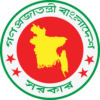The United States is Bangladesh’s one of the most important trading partner, with about 17-18 per cent of its exports are being destined for the United States. Bilateral trade between the United States and Bangladesh was over US$ 8.2 billion in 2018. However, from the United States perspective, Bangladesh can be considered as a small trading partner, since Bangladesh was the 51st largest trading partner of the United States in 2018.
Bangladesh’s major exportable items include woven apparel, knit apparel, miscellaneous textile products, cap, headgear, footwear, tobacco, snacks foods, furniture, ceramic, toys, plastic items, artificial flowers etc; while major importable includes raw cotton, chemicals, machinery and equipment, pharmaceuticals, aircraft, electrical equipment, iron and steel etc.
Despite high import tariffs in USA, the apparel based products from Bangladesh have made successful inroad in the recent years. About 90 percent of the total exports from Bangladesh to the United States are ready made garments.
Bangladesh’s total apparel export in USA was worth $4.29 billion in 2010 and it reached to $5.40 billion during 2018. Bangladesh is the second largest apparel exporters to the United States after China.
At present, there are 91 LEED (Leadership in Energy and Environmental Design) certified green garment factories in Bangladesh, which is the highest in number in the world. Six out of the world’s top 10 LEED certified factories are located in Bangladesh. 25 out of 91 LEED certified apparel factories have achieved the highest certificate provided by the US Green Building Council (USGBC), which is the highest in number in case of platinum-rated garment factories in the world.
The wage rate increase in China and the safety improvement in the RMG sector of Bangladesh in the recent years have gained buyers’ boosted confidence in Bangladesh apparels, and the US buyers are increasingly leaning towards Bangladesh for sourcing the merchandise. US based brands and importers can avail the opportunity of low-cost but apparels of good quality from Bangladesh.
Bangladesh exports to the United States over the recent years are furnished below:

Though apparel sector still remains the principal contributor to the country’s export earnings, other sectors such as pharmaceuticals, ceramic products, plastic articles, leather products, footwear, agro-products, software development & IT solutions, light engineering products are emerging gradually. Some of the key potential products are as follows:
Leather products:
Because of the adoption of the latest technology with plentiful raw materials and competitive labour forces, leather products have been emerging as one of the key exportable industries in Bangladesh. Bangladesh produces one of the finest quality of goatskin of smooth grain pattern in the world. Many manufacturers of leather products produce various types of high quality leather products such as shoes, travel goods, fashion accessories, belts, wallets, hand bags, case holders, etc for overseas markets. At present, leather products are exported to as many as 60 countries.
Jute and Jute Products:
Bangladesh is the world’s largest grower and exporter of the best quality jute and jute products. Bangladesh has netted international reputation as the primary source of high quality jute. Traditional use of jute fiber includes production of bio-degradable bags and sacks for packing agricultural produces, minerals, fertilizer, cement, sand etc. Fine-count jute clothes are used as carpet backing and similar purposes. Some eccentric but high end jute products such as footwear, hand bag, wallets have been introduced and are exported to different countries now-a-days.
Agricultural Products:
Bangladesh is the fifth largest producer of vegetable and eighth largest producer of potatoes, fourth largest producer of sweet water fish in the world. The Government has given significant importance on the expansion of agricultural products and agro-based industries. Vegetables, fruits, aromatic fine rice, tea and other agro-based products are being exported to different countries. A number of processed agro-based foods such as spices, potato products, fruit juice, pickles etc. are being exported as well.
Light Engineering Industries:
Light Engineering Industries is coming up as one of the key area for expanding the industrial base for exports. More than a thousand light engineering units are in operation around the country with various products for daily life uses. Bicycle, battery, solar panel, electrical appliances & machinery, wires, optical & medical equipment etc. have emerged as potential exportable products.
Pharmaceutical Products:
Pharmaceuticals have emerged as one of the fastest growing industry in Bangladesh which are comparable to international standard. At present, Bangladeshi exports covering extensive range of pharmaceutical products to more than 100 countries including highly regulated markets. Along with conventional products, Bangladesh exports specific products such as HFA & CFC inhalers, suppositories, nasal sprays, injectable, IV infusions, etc. These products have been well recognized by the regulatory bodies by the importing countries.
Software Development and ICT solutions:
The software is developing as a thriving industry in Bangladesh with a progressive rises in export products. Bangladesh is now exporting software and ICT solutions to more than 50 countries around the globe, and most of them are developed countries. And the number of countries availing these services from Bangladesh is increasing every year. Export earnings from software crossed US$ 800m in 2017-2018 fiscal year from exporting software and providing ICT-related services like outsourced and freelance works. At this moment, the main destinations of Bangladeshi software products are USA, UK, Canada, Australia, Denmark, Netherlands, Germany, India and Japan. According to the recent reports, Bangladesh is the world’s second largest provider of outsourcing and freelancing services in the IT sectors immediately after India.
This industry is not only earning huge amounts of foreign currency, but it’s also getting international recognition as a business hub for ICT and ITES products. Some software firms are performing extraordinarily well for the last couple of years and at present, at least 10 companies so far have achieved Capability Maturity Model Integration (CMMI) at level three, while one company achieved level five.
